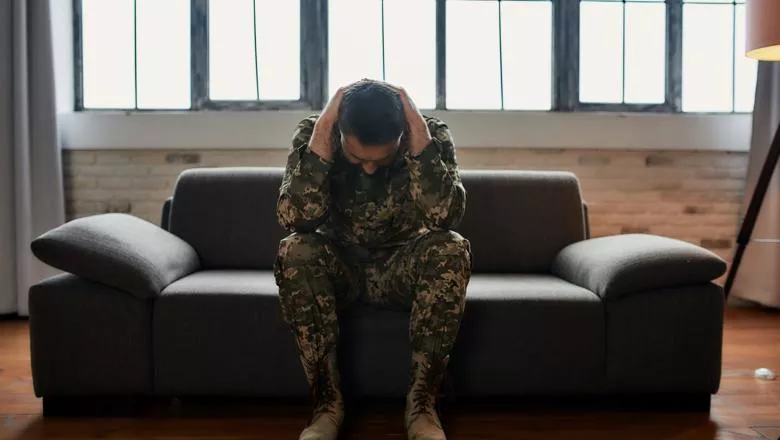We found much higher rates of harmful drinking in military personnel than in police employees, possibly due to a more prominent drinking culture in the military and/or unique operational experiences.
First author and PhD student Patricia Irizar, University of Liverpool
31 March 2021
PTSD and harmful drinking in the UK Armed Forces and UK Police Service
A new paper from King’s College London and the University of Liverpool, comparing post-traumatic stress disorder (PTSD) and harmful drinking in male members of the UK Armed Forces and the UK Police Service, has found similar rates of probable PTSD but higher rates of harmful alcohol use in military personnel.

Military personnel and police employees are occupational groups trained to work in high pressure and potentially traumatic situations, increasing the risk of PTSD and possibly maladaptive coping responses, such as harmful drinking. Both organisations have a culture of drinking, as alcohol has historically been used to increase social bonding or to de-stress.
The paper, published in European Journal of Psychotraumatology, used data from two existing cohort studies, which included measures of PTSD and alcohol consumption: The Health and Wellbeing of the UK Armed Forces cohort study (military personnel) and the Airwave Health Monitoring Study (police employees). The study sample included 7,399 male serving regular military personnel and 23,826 male serving police employees.
The analysis found 10% of military personnel showed harmful alcohol use (drinking above 50 units per week) compared to 3% of police employees. Similar levels of PTSD were found in military personnel and police employees (4% in both groups). In addition, having co-occurring PTSD and harmful drinking was more common in military personnel.
The similar levels of probable PTSD in military personnel and police employees are comparable to the levels in the general population. This could reflect efficient trauma support and training, or a sampling bias due to those with mental ill-health leaving service.
Joint first author Dr Sharon Stevelink, Senior Lecturer in the Department of Psychological Medicine at King’s College London
Principal Investigator for University of Liverpool, Dr Laura Goodwin added, ‘The higher levels of co-occurring PTSD and harmful drinking in military personnel, highlights the importance of integrating alcohol and mental health support for this group.’
The higher levels of harmful drinking in military personnel indicate a need for evidence-based alcohol interventions in military occupational settings.
Principal Investigator for King’s College London, Professor Nicola Fear
This analysis was part of a PhD studentship, funded by the Economic and Social Research Council (ESRC) and partly funded by Alcohol Change UK. The Health and Wellbeing of the UK Armed Forces cohort study was funded by the Ministry of Defence. The Airwave Health Monitoring Study was funded by the UK Home Office and is currently funded by the Medical Research Council and ESRC.
Probable post-traumatic stress disorder and harmful alcohol use among male members of the British Police Forces and the British Armed Forces: a comparative study by Patricia Irizar, Dr Sharon A.M. Stevelink, David Pernet, Dr Suzanne H. Gage, Professor Neil Greenberg, Professor Simon Wessely, Dr Laura Goodwin, and Professor Nicola T. Fear, is available with open access here. DOI: 10.1080/20008198.2021.1891734
Contact
For further information please contact Louise Pratt, Head of Communications, Institute of Psychiatry, Psychology & Neuroscience, King’s College London
Tel: +44 7850 919020
Email: louise.a.pratt@kcl.ac.uk


